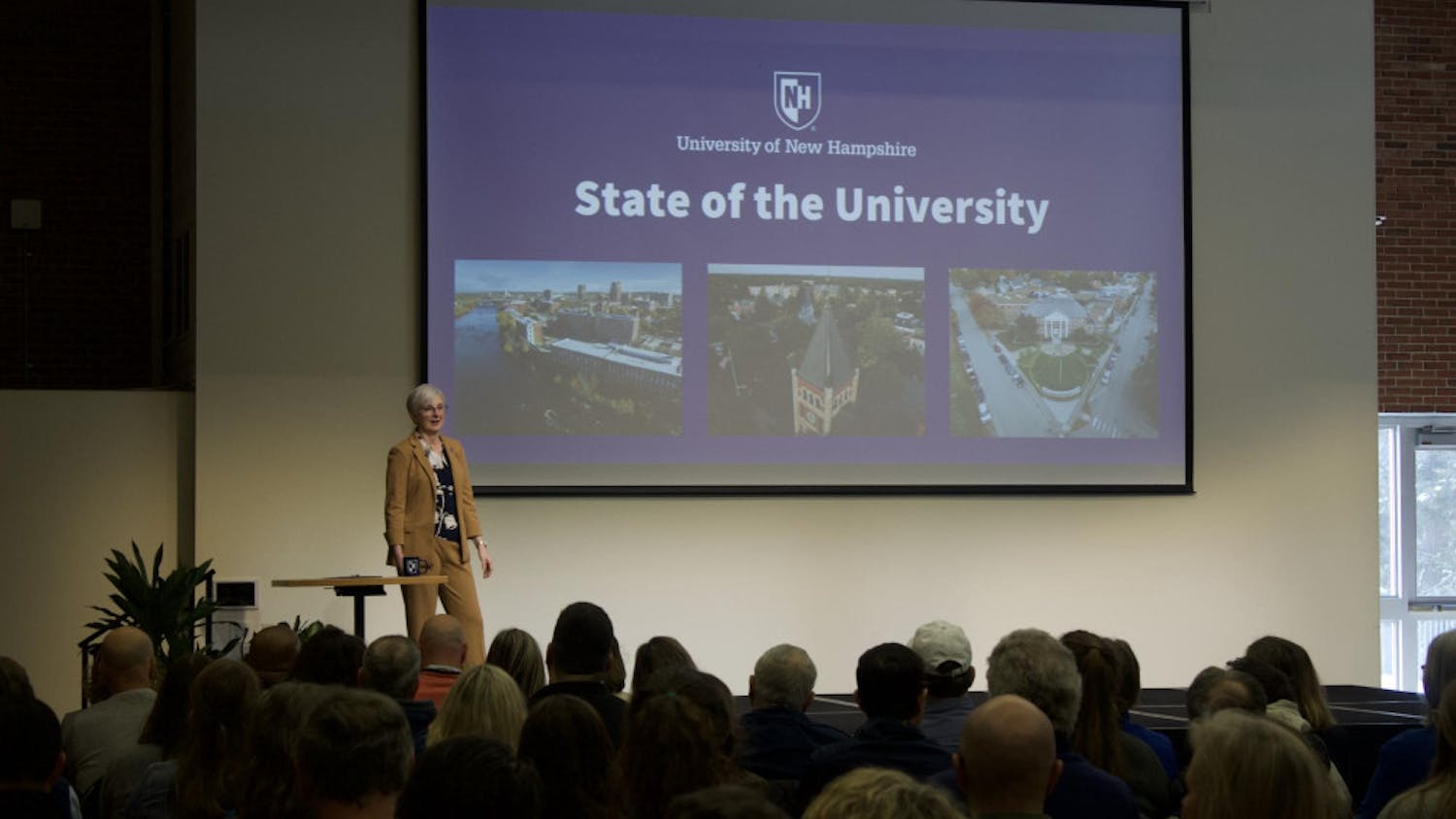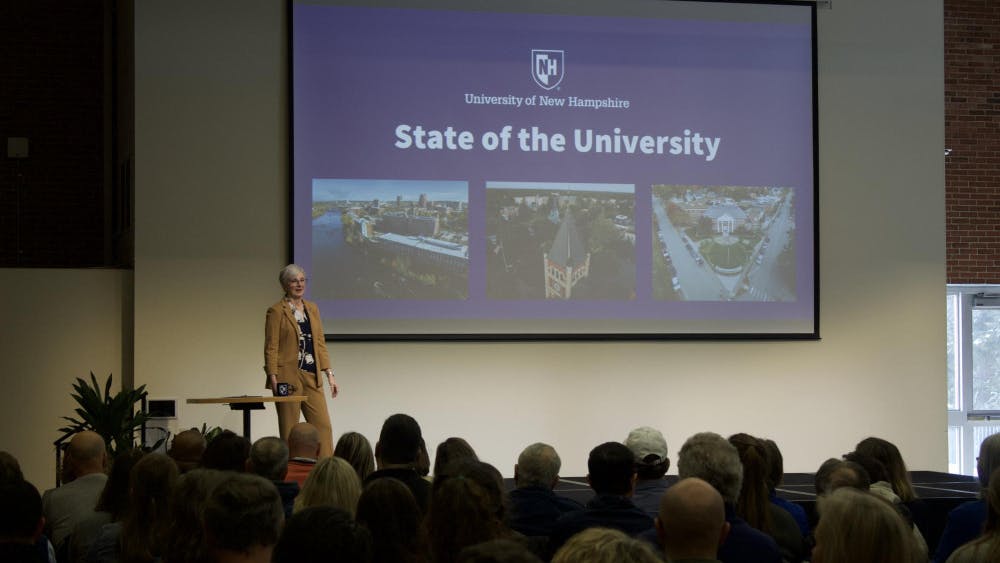The sight of half-filled wine glasses and open wine bottles in a college classroom may seem a little strange to most, yet there are 70 students at UNH, all 21 or older, who call this their class. The course, Beverage Management/International Wines, is one of the most popular courses within the Peter T. Paul College of Business and Economics (Paul College) and on campus as a whole, and allows students to receive and experience their first true knowledge of the wine world.
Nelson Barber, the professor of the course, has been teaching this class for many years at Paul College. Nelson is not only passionate about wine, which is emitted through his lectures, but also in the way his students build their own wine identity as well. “I hope my students gain the ability to walk into a restaurant, bar or store and state what wines they like, with confidence. I want them to know more than just white and red wine; I want them to build their own profile,” he said.
The first couple weeks of the course cover topics such as the process of winemaking and the marketing of wine labels. The simple basics of wine knowledge are covered within these weeks, with students learning such tasks as reading a wine menu and understanding it.
The course takes students through 16 to 20 wine tastes a semester, which includes learning and comparing different wines from certain regions, usually within the Pacific Northwest. The course uses wines that are aimed to be within a college student’s price range, allowing for the exploration of many different types of wines; ranging from dry rieslings to rich cabernet sauvignons. About 75 percent of the course covers wines throughout the semester, while also giving students the opportunity to dabble in something other than wine, such as local beers.
During each class, proper wine glasses labeled “Paul College” are distributed to each student, and a display of all different wines are presented in the front of the class. Together as a class, bottles of wine are poured, glasses swirled, smelled and then finally tasted. For each glass poured, Barber asks the students what they think of the color, consistency, smell and taste.
Throughout a class, students respond to wines with words such as “gamey,” “meaty,” “sweet” and even “bacon flavored.” Learning these terms not only helps the students know what type of food would be great to pair with that specific bottle, but it also leads them to understand what they like and dislike.
Some may think that such a class would be a breeze that consists of only tasting wine twice a week. However, that is not the case.
“The class definitely takes more time than I thought it would, but it’s more time consuming than hard,” said UNH senior Ashley Doherty.
Doherty has noticed that due to the course, she now tries to have wine more often while also understanding it in a better manner. “I used to drink Moscato but now I have learned to explore different kinds of wine,” she said.
In one class, Barber chose to give the first row of his class a bottle of wine that was spoiled, (better known as being “corked”) without telling the class because he wanted to see their reactions. The row finally described the wine as “corked,” after experiencing the unpleasant discovery of spoiled wine.
The hands-on experience students receive through a class such as this one is something that can be transferred to everyday life outside of UNH. Through experiential learning students are able to carry techniques and skills they have learned outside of Paul College.
UNH graduate Dave Biondo, ’10, strongly believes the course to be beneficial for students. “The class has absolutely come in handy in the real world, mostly in conversation with friends and co-workers about what types of wine we like but we also had a company dinner around the holidays and I ordered wine for the whole table since no one else knew what to get. I think I impressed the VP of my company with my wine knowledge, too. It’s honestly been one of the most useful classes I took at UNH,” Biondo said.











